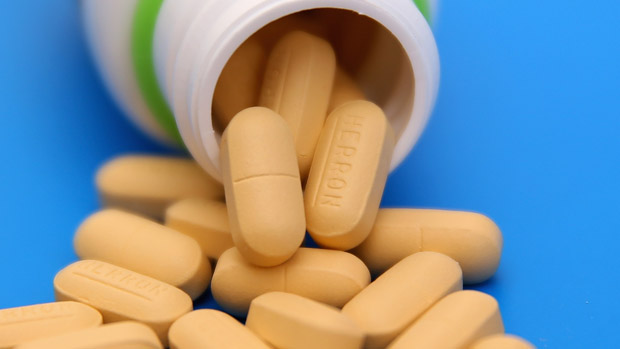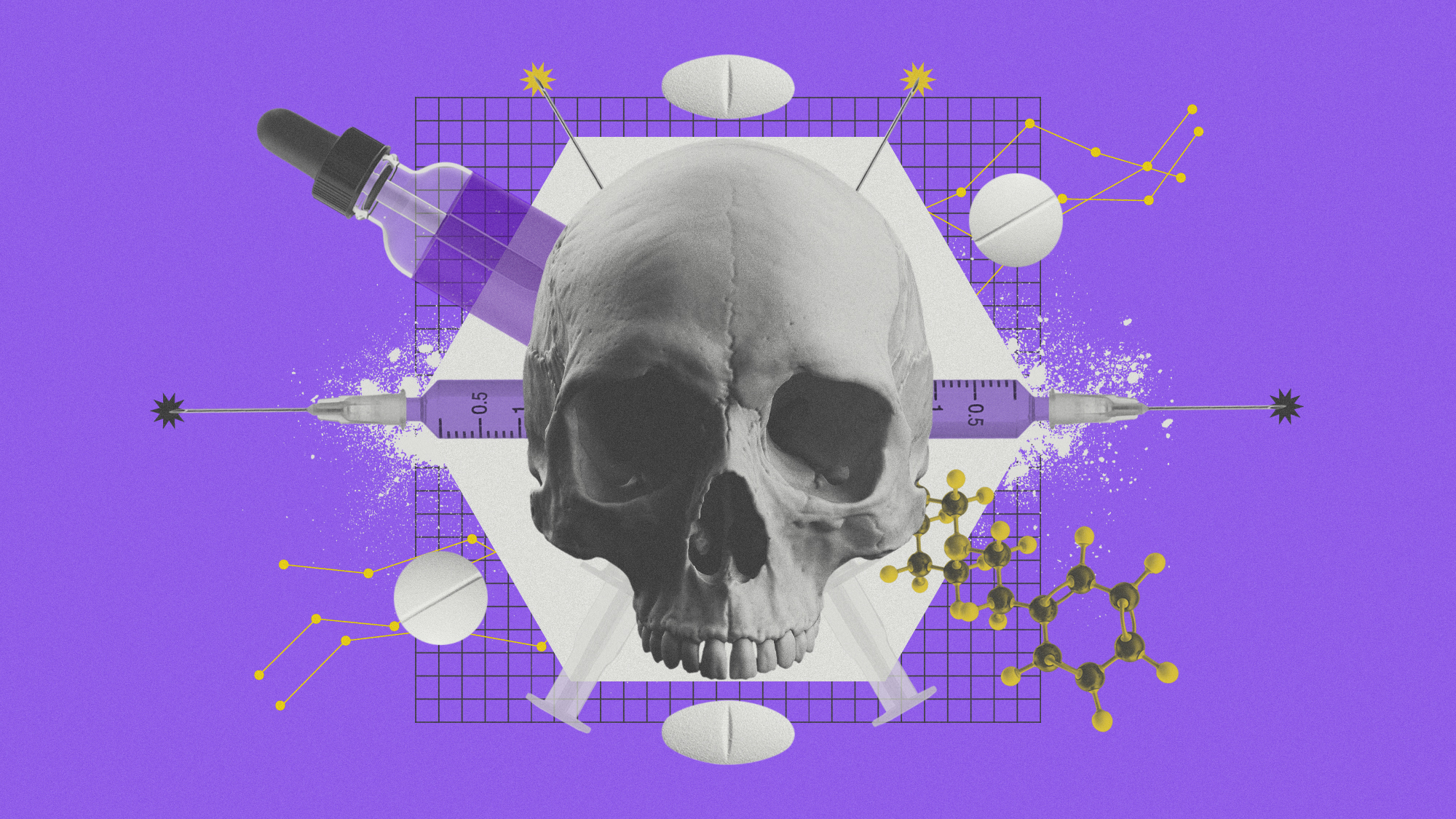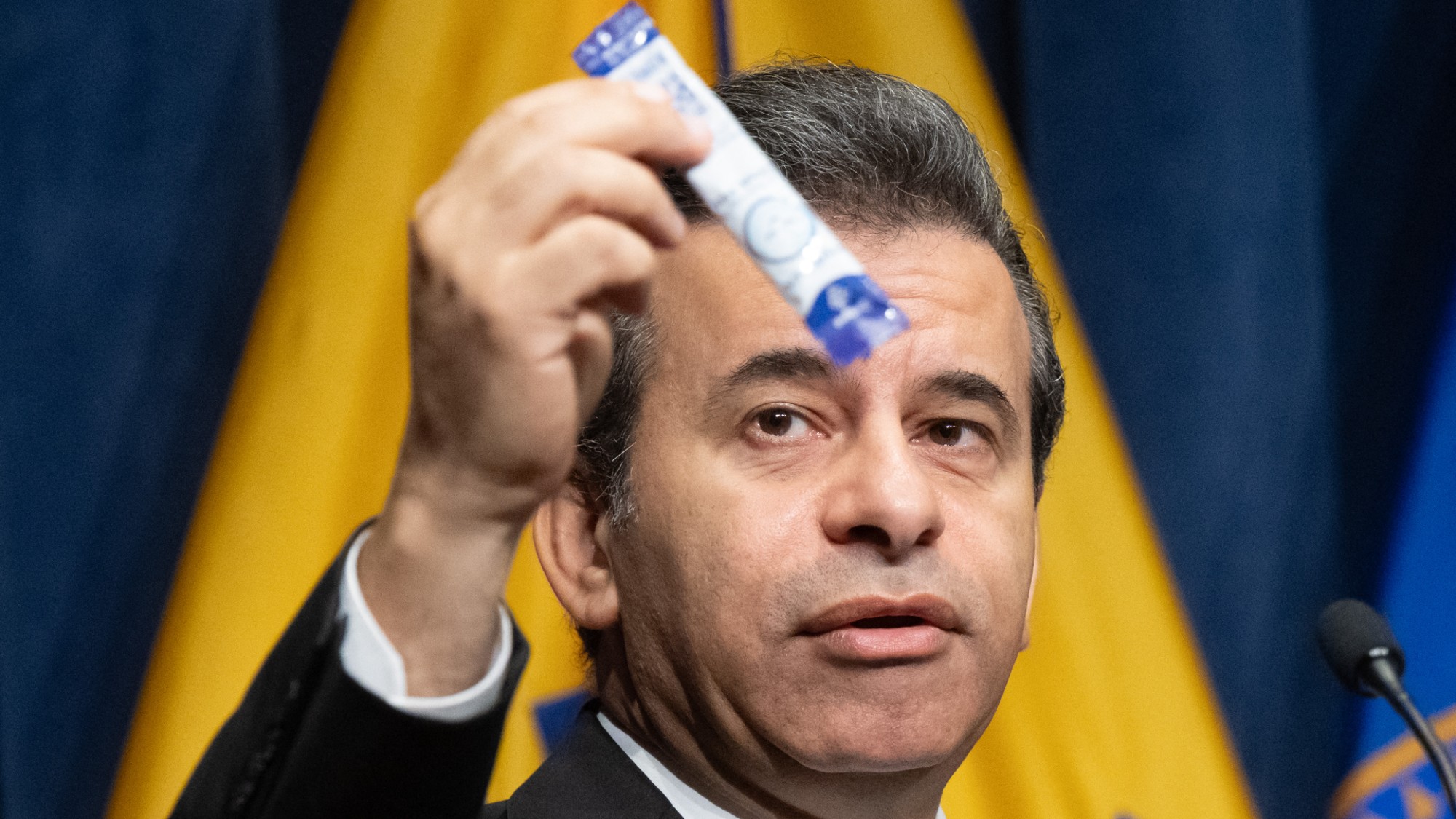Double-strength MDMA causing 'more mental health issues'
Experts warn powerful strains of party pills can lead to paranoia, memory loss, anxiety and depression

A free daily email with the biggest news stories of the day – and the best features from TheWeek.com
You are now subscribed
Your newsletter sign-up was successful
Stronger forms of MDMA, the active ingredient in ecstasy, are responsible for a rise in the number of people seeking medical treatment for mental health issues related to drug use, experts say.
Long-term use of the stimulant, which is popular in the rave and festival scene, can lead to paranoia, impaired memory, anxiety and depression.
"The danger is much greater now than it was in the late 1990s," drugs expert Professor Philip Murphy told the BBC.
The Week
Escape your echo chamber. Get the facts behind the news, plus analysis from multiple perspectives.

Sign up for The Week's Free Newsletters
From our morning news briefing to a weekly Good News Newsletter, get the best of The Week delivered directly to your inbox.
From our morning news briefing to a weekly Good News Newsletter, get the best of The Week delivered directly to your inbox.
"The risk now of young people using stronger ecstasy is higher in terms of being able to regulate emotion and your ability to think clearly."
Nearly 5,000 people were admitted to hospitals in England for mental or behavioural issues related to drug use in 2014/15, an increase of 215 per cent from ten years ago, the BBC says.
A study published in April by the European Monitoring Centre for Drugs and Drug Addiction found the amount of MDMA in the average pill had doubled in recent years.
While the average strength was between 50-80mg in the 1990s and 2000s, the current is around 125mg.
A free daily email with the biggest news stories of the day – and the best features from TheWeek.com
"Meanwhile," says Vice, "'super pills' are coming in from the rest of Europe – most often the Netherlands – with some containing an unthinkable 270-340 mg."
As well as the increasing potency of MDMA, British drug users are also endangering themselves with the quantity they consume. Dr Adam Winstock, who runs the Global Drugs Survey, told Vice. "The average ecstasy user in the UK uses more MDMA in a session than anywhere else in the world," he said.
An Office for National Statistics report released last September said 3,346 deaths attributed to drug poisoning were registered in the UK in 2014 – the highest since records began in 1993.
-
 6 of the world’s most accessible destinations
6 of the world’s most accessible destinationsThe Week Recommends Experience all of Berlin, Singapore and Sydney
-
 How the FCC’s ‘equal time’ rule works
How the FCC’s ‘equal time’ rule worksIn the Spotlight The law is at the heart of the Colbert-CBS conflict
-
 What is the endgame in the DHS shutdown?
What is the endgame in the DHS shutdown?Today’s Big Question Democrats want to rein in ICE’s immigration crackdown
-
 ‘Longevity fixation syndrome’: the allure of eternal youth
‘Longevity fixation syndrome’: the allure of eternal youthIn The Spotlight Obsession with beating biological clock identified as damaging new addiction
-
 A fentanyl vaccine may be on the horizon
A fentanyl vaccine may be on the horizonUnder the radar Taking a serious jab at the opioid epidemic
-
 RFK Jr. sets his sights on linking antidepressants to mass violence
RFK Jr. sets his sights on linking antidepressants to mass violenceThe Explainer The health secretary’s crusade to Make America Healthy Again has vital mental health medications on the agenda
-
 Nitazene is quietly increasing opioid deaths
Nitazene is quietly increasing opioid deathsThe explainer The drug is usually consumed accidentally
-
 Can TrumpRx really lower drug prices?
Can TrumpRx really lower drug prices?Today’s Big Question Pfizer’s deal with Trump sent drugmaker stocks higher
-
 The UK’s opioid crisis: why the stats don’t add up
The UK’s opioid crisis: why the stats don’t add upThe Explainer A new report has revealed that the UK’s total of opioid-related deaths could be much greater than official figures show
-
 The app tackling porn addiction
The app tackling porn addictionUnder the Radar Blending behavioural science with cutting-edge technology, Quittr is part of a growing abstinence movement among men focused on self-improvement
-
 Why the FDA wants to restrict kratom-related products
Why the FDA wants to restrict kratom-related productsIn the Spotlight The compound is currently sold across the United States